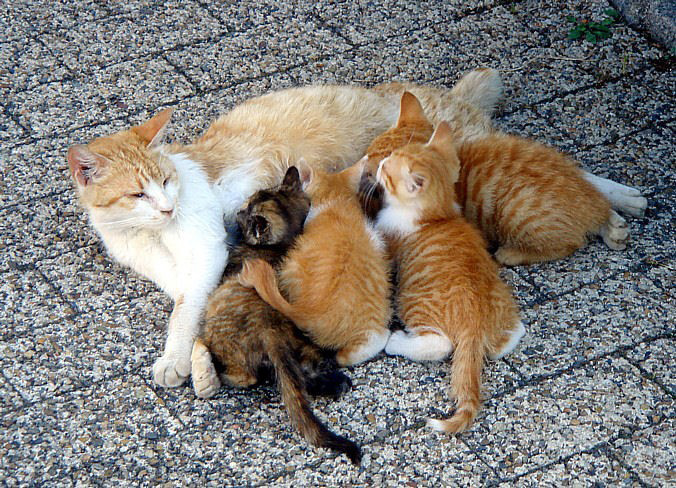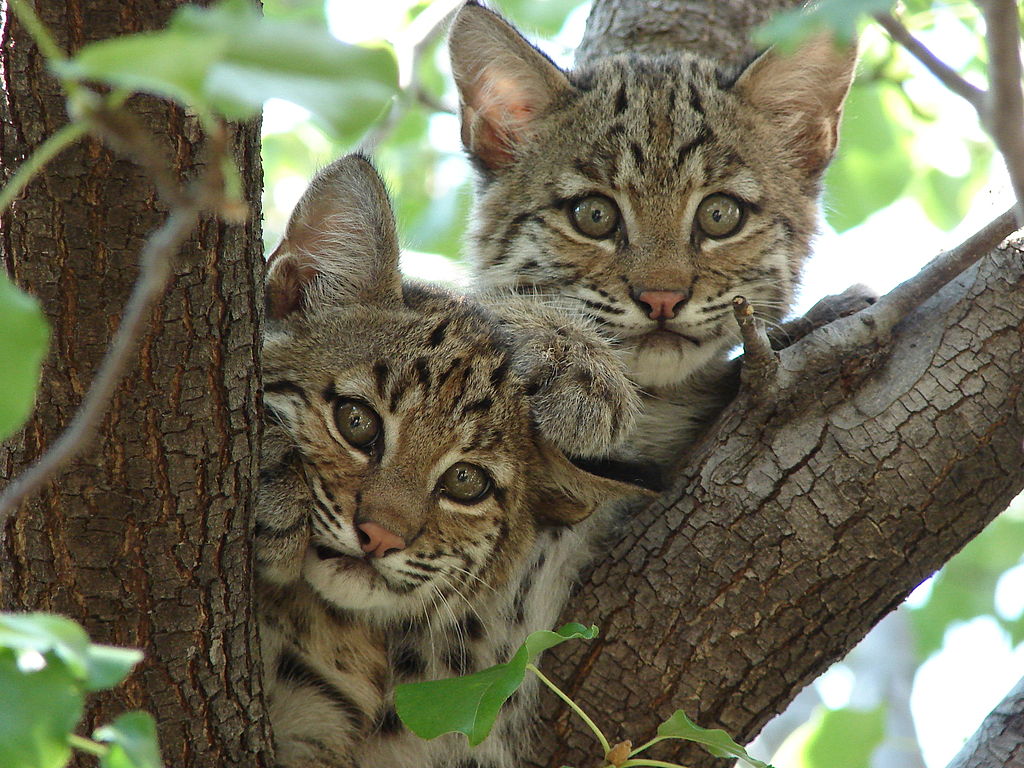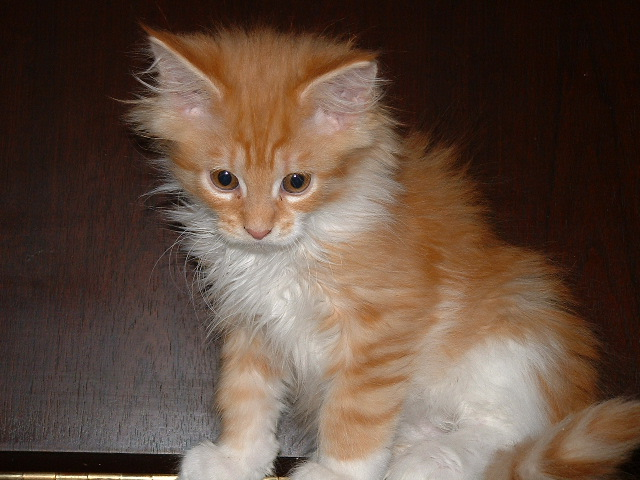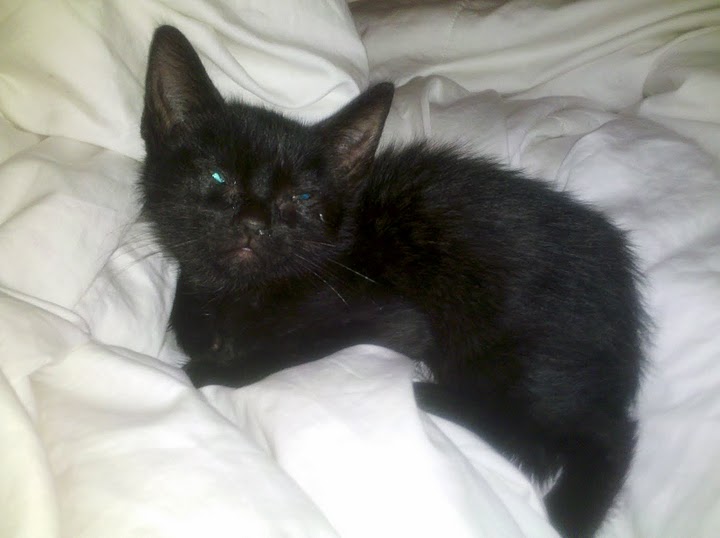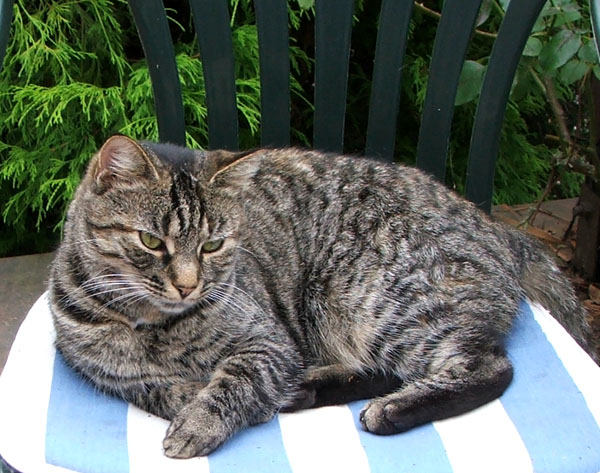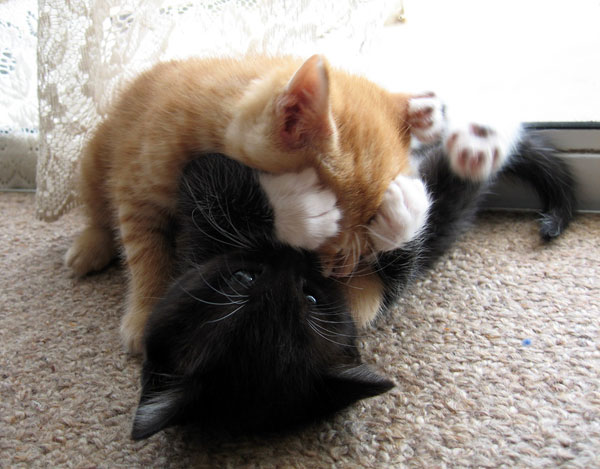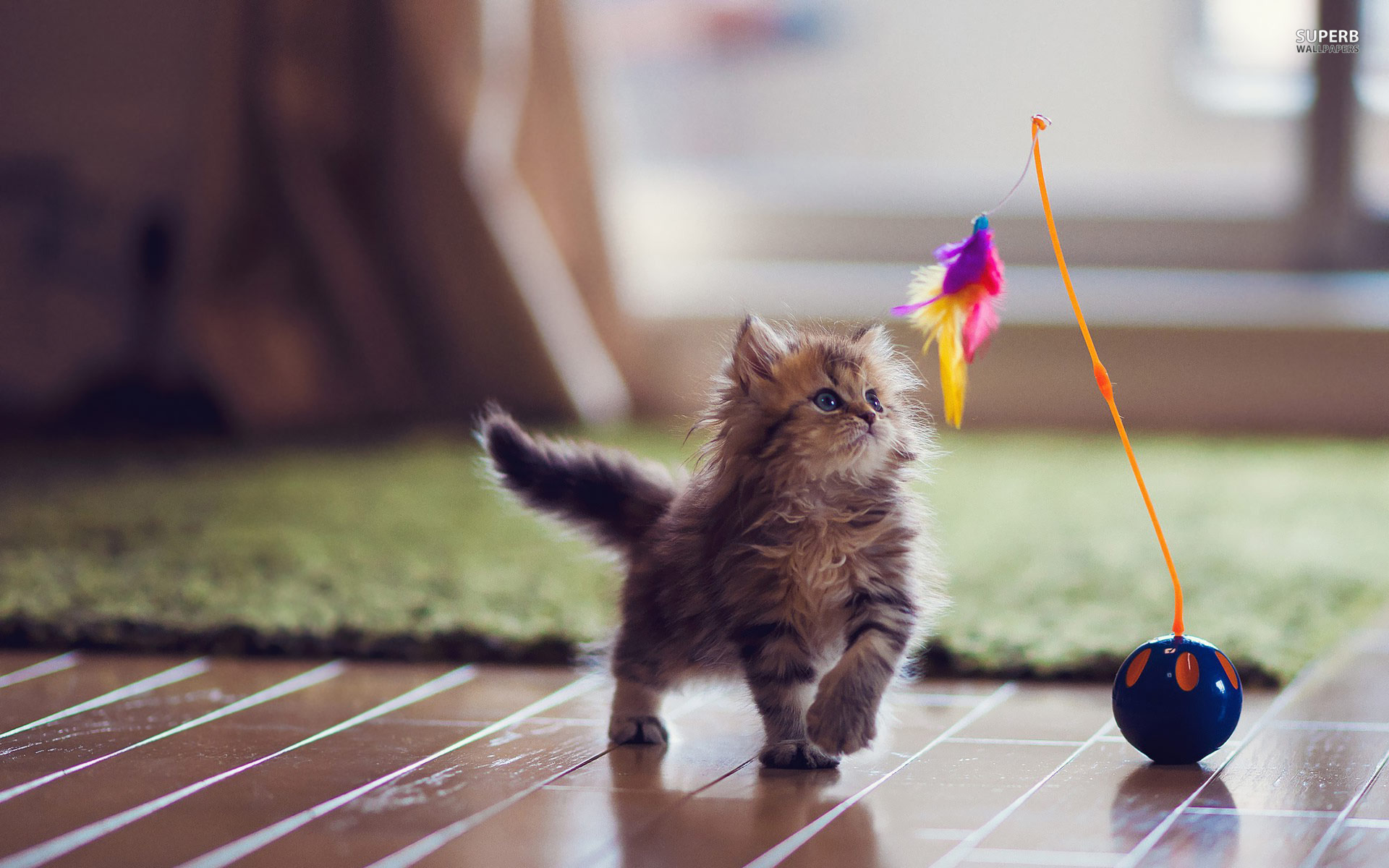ETYMOLOGY AND DEVELOPMENT
A kitten is a juvenile cat. After being born, kittens are totally dependent on their mother for survival and do not normally open their eyes until after seven to ten days. After about two weeks, kittens quickly develop and begin to explore the world outside the nest. After a further three to four weeks, they begin to eat solid food and grow adult teeth. Domestic kittens are highly social animals and enjoy human companionship.The word "kitten" derives from the Middle English word kitoun, which in turn came from the Old French chitoun or cheton. The big cats are called "cubs" rather than kittens; either term may be used for the young of smaller wild felids, such as ocelots, caracals and lynx, but "kitten" is usually more common for these species.
A feline litter usually consists of two to five kittens. The kits are born after a gestation that lasts between 64 and 67 days, with an average length of 66 days. Kittens emerge in a sac called the amnion, which is bitten off and eaten by the mother cat.
For the first several weeks, kittens are unable to regulate their body temperature for the first three weeks, so kittens born in temperatures less than 27°C (81°F) can die from hypothermia if their mother does not keep them warm. The mother's milk is very important for the kittens' nutrition and proper growth. This milk transfers antibodies to the kittens, which helps protect them against infectious disease. Kittens open their eyes about seven to ten days after birth. At first, the retina is poorly developed and vision is poor. Kittens are not able to see as well as adult cats until about ten weeks after birth.
Kittens develop very quickly from about two weeks of age until their seventh week. Their coordination and strength improve. They play-fight with their litter-mates and begin to explore the world outside the nest or den. They learn to wash themselves and others as well as play hunting and stalking games, showing their inborn ability as predators. These innate skills are developed by the kittens' mother or other adult cats, who bring live prey to the nest. Later, the adult cats demonstrate hunting techniques for the kittens to emulate. As they reach three to four weeks old, the kittens are gradually weaned and begin to eat solid food, with weaning usually complete by six to eight weeks. Kittens generally begin to lose their baby teeth around three months of age, and have a complete set of adult teeth by nine months. Kittens live primarily on solid food after weaning, but usually continue to suckle from time to time until separated from their mothers. Some mother cats will scatter their kittens as early as three months of age, while others continue to look after them until they approach sexual maturity.
Kittens are highly social animals and spend most of their waking hours interacting with available animals and playing on their own. Play with other kittens peaks in the third or fourth month after birth, with more solitary hunting and stalking play peaking later, at about five months. Kittens are vulnerable because they like to find dark places to hide, sometimes with fatal results if they are not watched carefully. Although domestic kittens are commonly sent to new homes at six to eight weeks of age, it has been suggested that being with its mother and litter mates from six to twelve weeks is important for a kitten's social and behavioural development. Usually, breeders will not sell a kitten that is younger than twelve weeks, and in many jurisdictions, it is illegal to give away kittens younger than eight weeks old. Kittens generally reach sexual maturity around seven months of age. A cat reaches full "adulthood" around one year of age.
